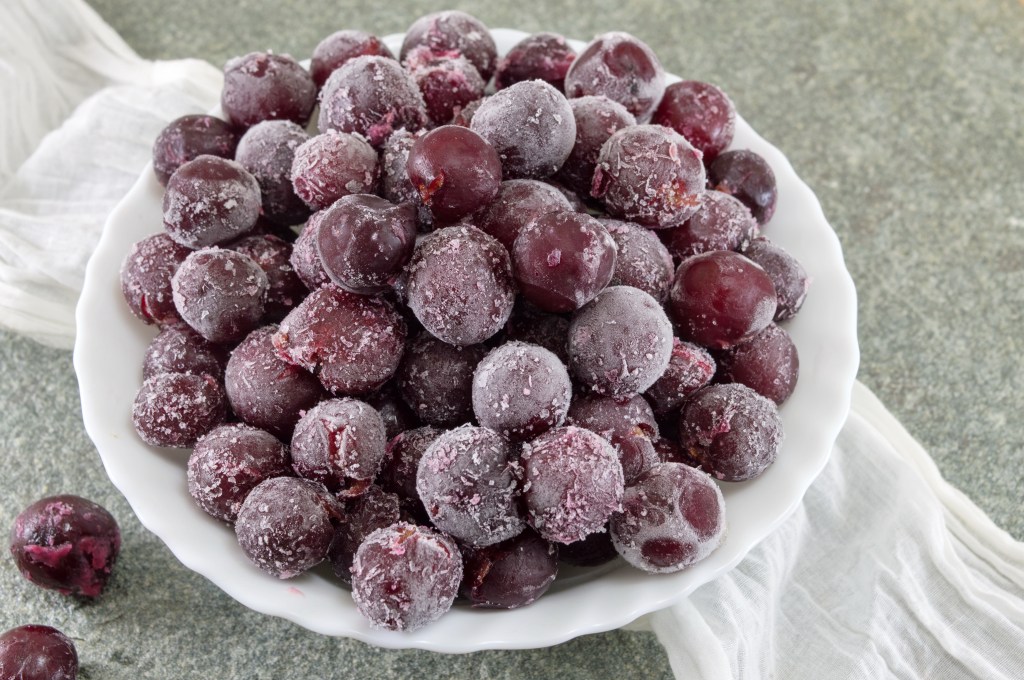Talk about grape expectations.
Dr. Jason Singh, a primary care physician based in Virginia, is sharing a sweet suggestion to manage the urge to stress eat. He recommends letting frozen grapes melt in your mouth.
“The cold temperature activates TRPM8 receptors in the mouth, which then triggers the release of dopamine — and that’s responsible for pleasure, similar to what we seek during stress,” Singh explained Tuesday on TikTok.

Transient receptor potential melastatin subtype 8 (TRPM8) receptors are primarily activated by temperatures below your core body temperature, typically about 79 degrees Fahrenheit or 26 degrees Celsius.
They really kick in when temperatures reach 50 degrees Fahrenheit or 10 degrees Celsius, researchers have found.
Activated TRPM8 receptors can suppress the release of CGRP, a neuropeptide that depletes dopamine in the brain, and increase levels of interleukin-10, an anti-inflammatory protein in the body that responds to stressful situations.
Singh also reports that the cooling sensation from the grapes provokes the parasympathetic nervous system, slowing down heart rate and breathing, lowering blood pressure and cortisol levels and promoting digestion.
Levels of cortisol, the body’s primary stress hormone, have been shown to decrease in cold situations, like immersion in chilly water.
And finally, Singh said chewing the grapes stimulates the salivary glands to produce saliva, tricking your brain into thinking you ate something of substance and you are full.
“So the next time you’re feeling stressed, reach out for some frozen grapes,” Singh said.

Grapes are ripe for weight loss. They are relatively low in calories — a cup (about 92 grams) contains 62 calories.
There’s also plenty of water and fiber in grapes, and they are a rich source of vitamins C and K and the heart-healthy antioxidant resveratrol.














